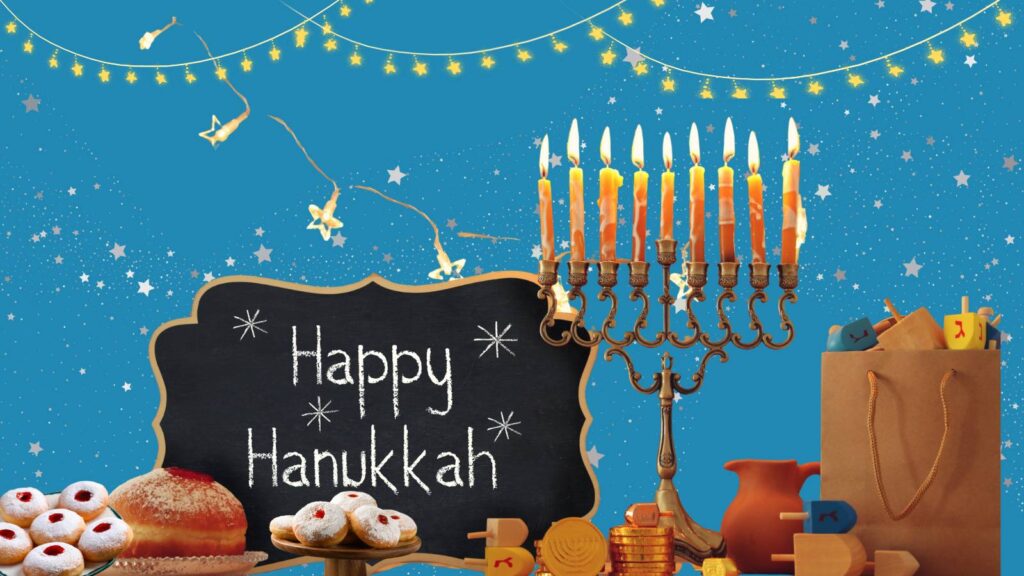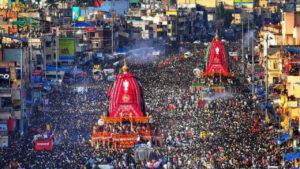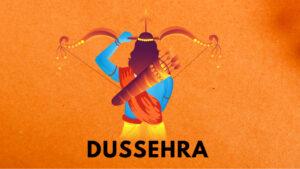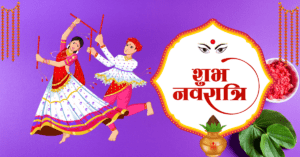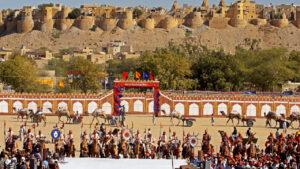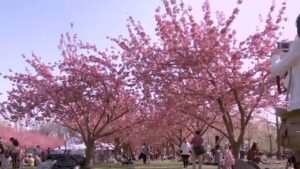As the winter season approaches, homes across the world begin to glow with lights, family traditions, and festive decorations. During this time, many people, particularly in Western societies, encounter both Hanukkah and Christmas celebrations and often wonder: are they the same? While both holidays share certain surface-level similarities, they are rooted in very different histories, religious contexts, and cultural traditions.
100+ Merry Christmas Messages, Greetings, Wishes, Wuotes 2025
In multicultural societies, it’s not uncommon to see menorahs and Christmas trees side by side, leading to further curiosity and comparisons. Equating the two can obscure the depth and beauty of each celebration.
This guide will show the differences, timing, and common misconceptions surrounding Hanukkah and Christmas to offer a clearer understanding of each unique celebration, allowing readers to approach both with greater respect and insight.
Why People Often Compare Hanukkah and Christmas
One of the primary reasons people tend to compare Hanukkah and Christmas is the simple fact that both occur in December. This timing makes them appear connected, especially in the Western world where winter holidays are celebrated with lights, decorations, and festive gatherings. However, despite this proximity on the calendar, the two holidays are rooted in entirely different religious traditions and historical contexts.
Both holidays involve family gatherings, gift-giving, and lights, which add to the confusion. Children receive presents, homes are decorated with symbolic items (menorahs or Christmas trees), and warm meals are shared with loved ones. Furthermore, pop culture and the commercialization of holidays often portray them in similar ways, creating a blurred perception of their true meanings.
What Is Hanukkah?
Hanukkah, also spelled Chanukah, is an eight-day Jewish holiday also known as the Festival of Lights. It commemorates a historical event from over 2,000 years ago when the Jewish Maccabees led a successful revolt against the oppressive Seleucid Empire, reclaiming the Second Temple in Jerusalem. After cleansing and rededicating the sacred space, they sought to relight the temple’s eternal flame, but only found enough ritually pure oil to last one day.
Miraculously, the oil burned for eight days, long enough to prepare and consecrate a new supply. This event is seen as a sign of divine intervention and is central to Hanukkah’s symbolism. Today, Jewish families light the Hanukkiah, a nine-branched candelabrum, to commemorate each night of the miracle.
The holiday is also a celebration of Jewish resilience, a reminder of the strength to preserve faith under oppression, and a declaration of religious freedom. Though not as religiously significant as holidays like Passover or Yom Kippur, Hanukkah remains a meaningful time for Jewish identity, storytelling, and family unity.
When Is Hanukkah Celebrated?
In 2025, Hanukkah will begin at sundown on Sunday, December 21, 2025, and end at nightfall on Monday, December 29, 2025. The holiday always starts on the 25th day of Kislev, a month in the Hebrew calendar, which shifts each year on the Gregorian calendar due to differences in how each system measures time.
This year, the holiday spans the final week of December, overlapping with the Christmas season, which will likely cause many to blend the two celebrations unintentionally. It’s essential to understand that while the timing may appear similar, the historical and religious significance of Hanukkah remains entirely distinct from that of Christmas.
Jewish families prepare for Hanukkah by checking both their Hebrew and secular calendars. Synagogues and community centers often publish dual-calendar event schedules to help families plan for nightly menorah lighting, parties, and communal events. This yearly variation in dates highlights the importance of understanding both the lunisolar Hebrew calendar and its relation to the Western Gregorian one.
When Does Hanukkah Start?
Hanukkah always begins at sundown on the 25th of Kislev. In 2025, that means the first candle of the menorah will be lit on the evening of Sunday, December 21. Unlike holidays that begin at midnight, Jewish days start at sunset, which aligns with the rhythm of traditional Jewish life and spiritual practice.
The first night holds great importance. Families come together, often with guests, to recite blessings, light the first candle, and share traditional foods. Each night, one additional candle is added to the menorah until all eight (plus the shamash, the helper candle) shine brightly on the final night. This buildup reflects a growing light and hope, reinforcing spiritual values central to Judaism.
Community centers and public squares often host large-scale menorah lightings to mark the beginning of Hanukkah. These events attract not just Jewish participants but also interfaith families and curious onlookers who want to understand the meaning behind the glowing candelabra.
Hanukkah Prayer and Blessings Explained
Each night of Hanukkah begins with the recitation of three traditional blessings when lighting the menorah. The first two blessings are repeated each night, while the third, the “Shehechiyanu”, is only recited on the first night to express gratitude for reaching this moment in the year. These blessings are deeply rooted in Jewish liturgy and serve to sanctify the act of lighting the candles.
The prayers acknowledge God’s role in performing miracles for the Jewish people “in those days at this time,” connecting the past with the present. After the blessings, families often sing “Maoz Tzur” (Rock of Ages) and other Hanukkah songs, creating a joyous and spiritually rich environment. These rituals offer not just a moment of remembrance but also a chance to connect across generations, reinforcing faith and family ties.
Common Misunderstandings About Hanukkah
One of the most pervasive myths is that Hanukkah is the “Jewish equivalent of Christmas.” This misunderstanding likely stems from the holiday’s December timing and recent cultural evolution, including the incorporation of gift-giving in Western Jewish communities. However, Hanukkah has no connection to the birth of a deity and is not centered around salvation or divine incarnation.
Many also assume that the emphasis on gifts in Hanukkah mirrors Christmas customs, when in fact, traditional Hanukkah celebrations focused more on religious freedom and communal rituals. Similarly, people often confuse Hanukkah menorahs with decorative Christmas lights, overlooking their profound religious significance and prescribed use in Jewish homes. It’s crucial to recognize that while modern practices have adapted in response to cultural surroundings, the essence of Hanukkah remains deeply spiritual and historical.
What Is Christmas?
Christmas, celebrated on December 25, marks the birth of Jesus Christ, who is regarded in Christianity as the Son of God and the Savior of the world. The holiday has deep theological roots, representing the moment when God took human form to bring salvation to mankind. Over centuries, Christmas evolved into a blend of religious solemnity and festive celebration, particularly in Western cultures.
Christian observances often include Midnight Mass, reading the Nativity story, and partaking in special prayers. Beyond religious traditions, Christmas has grown into a global phenomenon, featuring customs like decorating Christmas trees, exchanging gifts, baking cookies, and enjoying festive music and films.
The holiday emphasizes themes of hope, peace, love, and giving, which resonate across cultures. However, its core remains deeply rooted in Christian beliefs about divine grace and redemption, setting it apart from the historical and commemorative nature of Hanukkah.
Hanukkah vs. Christmas: Key Differences in Meaning and Practice
| Aspect | Hanukkah | Christmas |
|---|---|---|
| Religious Significance | Minor Jewish festival, not as sacred as Rosh Hashanah or Yom Kippur | Major Christian holy day celebrating the birth of Jesus Christ |
| Origin | Commemorates the Maccabean revolt and rededication of the Second Temple | Celebrates the birth of Jesus, considered the Son of God in Christianity |
| Central Theme | Victory of faith, religious freedom, and miracle of the oil | Birth of a divine savior and message of peace, joy, and salvation |
| Ritual Symbols | Menorah (8-branched candelabrum + 1 shamash), dreidel, oil-based foods | Christmas tree, nativity scene, lights, wreaths, and ornaments |
| Duration | 8 nights and days | 1–2 days (Christmas Eve and Christmas Day) |
| Gift Giving | Often spread over eight nights | Usually exchanged on Christmas Day or Eve |
| Religious Practices | Lighting the menorah, reciting blessings, playing dreidel, eating latkes | Attending Mass or church services, singing carols, reading the nativity story |
| Date (2025) | Begins at sunset on Sunday, December 21, ends on Monday, December 29 | Celebrated on Thursday, December 25, Christmas Eve on Wednesday, Dec 24 |
| Cultural Role | Strong in Jewish homes, less emphasized in public spheres | Widely celebrated in both religious and secular contexts worldwide |
| Associated Foods | Latkes (potato pancakes), sufganiyot (jelly doughnuts), dairy foods | Roast meats, Christmas pudding, cookies, eggnog |
| Public Celebrations | Community menorah lightings, school and synagogue events | Public holiday, festive markets, parades, and large-scale decorations |
FAQs
1. Is Hanukkah the same as Christmas?
No. Hanukkah and Christmas are two completely different holidays. Hanukkah is a Jewish festival commemorating the rededication of the Second Temple in Jerusalem, while Christmas is a Christian celebration marking the birth of Jesus Christ.
2. Why do Hanukkah and Christmas often happen around the same time?
Hanukkah typically falls in late November or December because it follows the Hebrew calendar, specifically starting on the 25th of Kislev, which often overlaps with the Gregorian dates near Christmas.
3. What are the main differences between Hanukkah and Christmas?
- Religious Roots: Hanukkah is Jewish; Christmas is Christian.
- Meaning: Hanukkah celebrates a military victory and miracle of oil; Christmas celebrates the birth of Jesus.
- Traditions: Hanukkah includes lighting the menorah, playing dreidel, and eating fried foods; Christmas involves tree decorating, gift-giving, and nativity scenes.
4. How long does Hanukkah last?
Hanukkah lasts for eight days and nights, whereas Christmas is typically a one-day holiday, celebrated on December 25.
5. Do Jewish people celebrate Christmas?
In general, observant Jews do not celebrate Christmas, as it is a Christian holiday. However, some secular or interfaith families may participate in certain aspects of the season for cultural or social reasons.
6. Why is Hanukkah sometimes called the “Jewish Christmas”?
This is a misconception. The holidays coincide on the calendar and both involve gift-giving, but they are not related. The phrase often reflects misunderstanding rather than actual similarity.
7. What is the story behind Hanukkah?
Hanukkah commemorates the Maccabean Revolt against the Syrian-Greek empire and the miracle of a small amount of oil that lasted eight days in the rededicated Jewish Temple’s menorah.
8. Is gift-giving a traditional part of Hanukkah?
Historically, no. Gift-giving became more common in modern times, especially in Western countries, as a response to the prominence of Christmas traditions. Traditional Hanukkah gifts were gelt (coins or chocolate coins).
9. What are some common symbols of Hanukkah?
- Menorah (eight-branched candelabrum + shamash)
- Dreidel (a spinning top with Hebrew letters)
- Gelt (coins or chocolate)
- Oil-based foods like latkes and sufganiyot
10. Can non-Jews participate in Hanukkah celebrations?
Yes, many Jewish families welcome friends of other faiths to learn about and celebrate Hanukkah, especially during menorah lightings or festive meals. It’s a great way to promote cultural understanding and respect.
